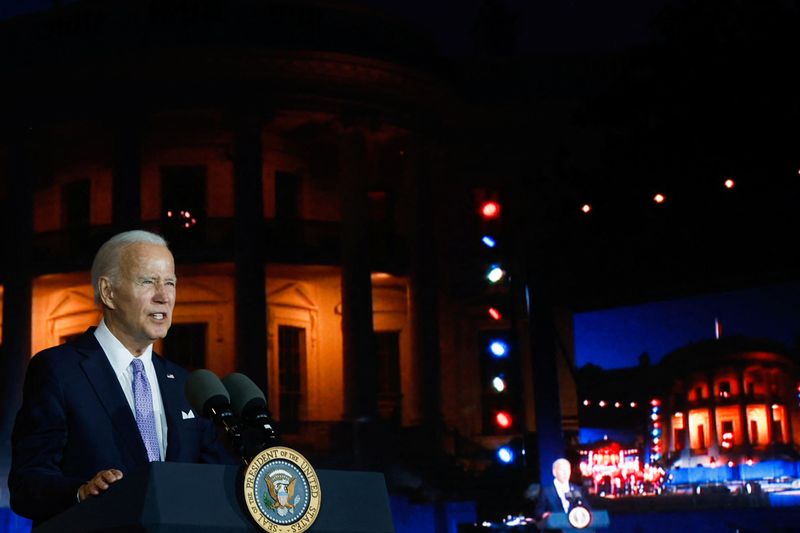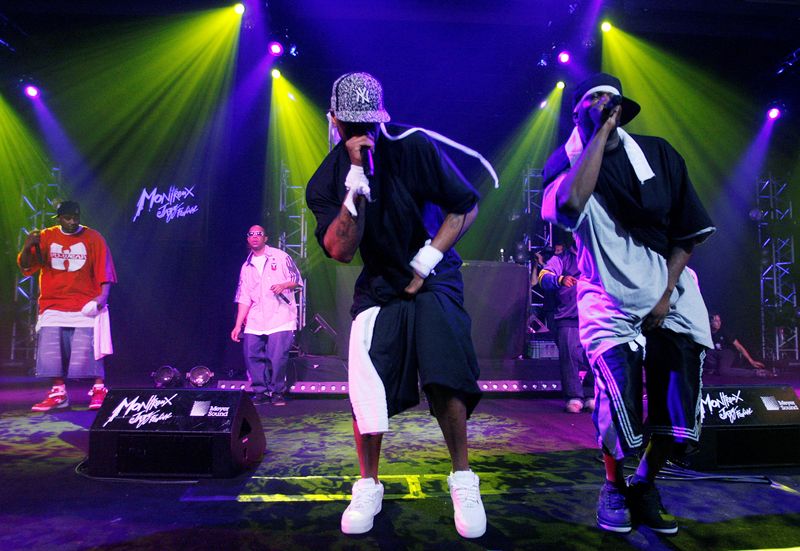By Andrea Shalal and Jeff Mason
WASHINGTON (Reuters) -President Joe Biden on Tuesday denounced racism in the United States and said the Juneteenth holiday was meant to help underscore American values that he said were under threat.
Speaking at the White House's first big Juneteenth celebration, a concert that featured performances by singers Jennifer Hudson (NYSE:HUD), Audra McDonald and Ledisi, Biden urged Americans to choose love over hate and to remember history, not erase it.
"As the past few years remind us, our freedoms have been put at risk by racism that's still too powerful a force," he said.
"Hate only hides... And when given oxygen, just a little oxygen, it comes roaring back out again, and we have to ... stand up and deny it the oxygen. So Juneteenth as a federal holiday is meant to breathe a new life into the very essence of America."
Biden declared Juneteenth - a portmanteau of June and 19th, also known as Emancipation Day - a federal holiday in 2021. It commemorates the day in 1865, after the Confederate states had surrendered to end the Civil War, when a Union general arrived in Texas to inform a group of enslaved African Americans of their freedom under President Abraham Lincoln's 1863 Emancipation Proclamation.
It has been a holiday in Texas since 1980. U.S. presidents dating back to George W. Bush have marked Juneteenth from the White House, often with a somber statement.
Vice President Kamala Harris, the first Black woman vice president, opened the evening at the White House with a description of the origins of the day and an introduction of 96-year-old Opal Lee, whose advocacy helped turn Juneteenth into a holiday.

"Make yourself a committee of one to change somebody's mind," Lee told the audience. "If people can be taught to hate, they can be taught to love."
The White House described the event as a celebration of community, culture and music. It included music from marching bands from Morgan State University in Baltimore and Tennessee State University, in Nashville. Other performers were dance group Step Afrika! and choirs from more historically black colleges and universities.
